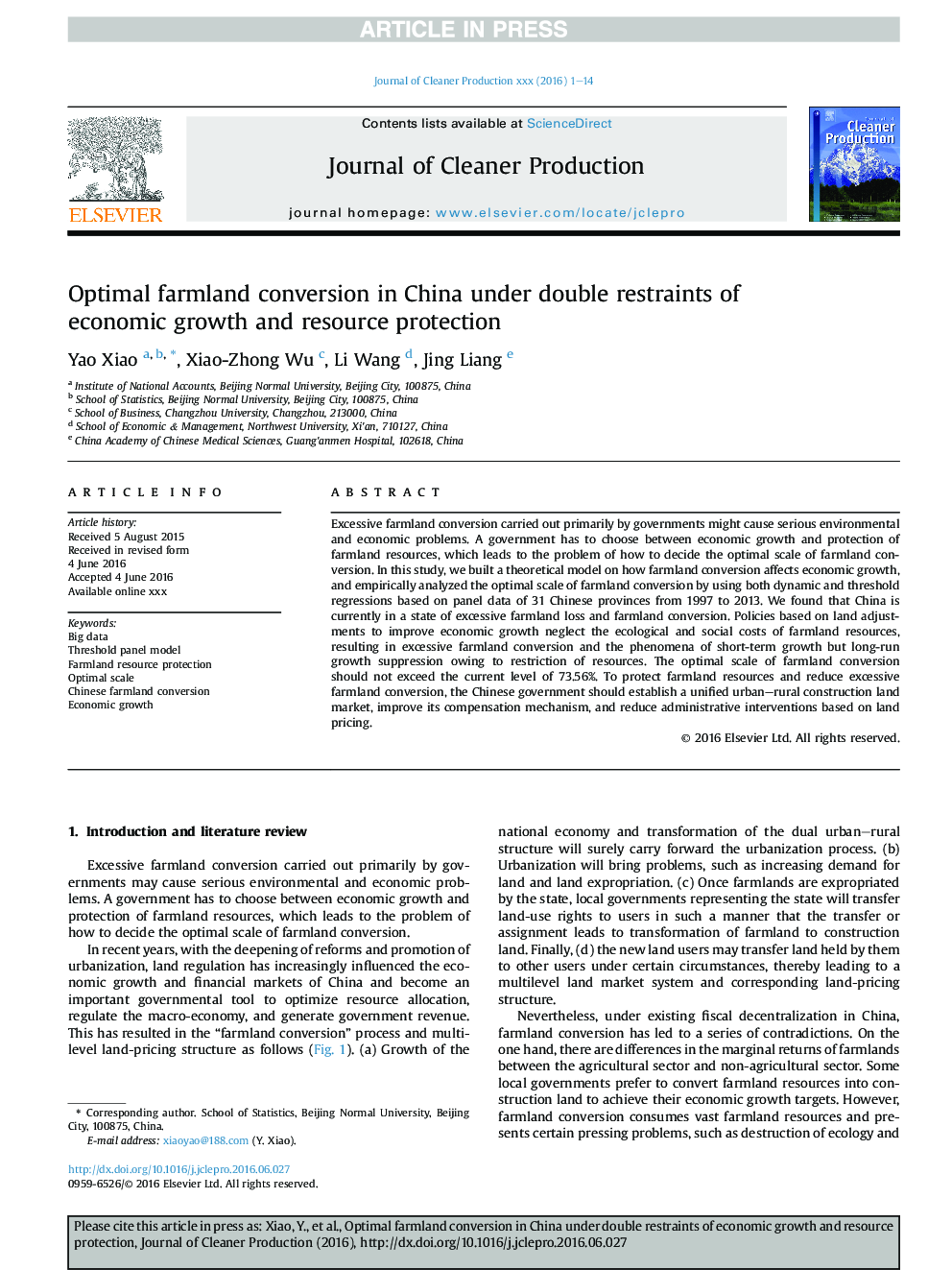| Article ID | Journal | Published Year | Pages | File Type |
|---|---|---|---|---|
| 5481215 | Journal of Cleaner Production | 2017 | 14 Pages |
Abstract
Excessive farmland conversion carried out primarily by governments might cause serious environmental and economic problems. A government has to choose between economic growth and protection of farmland resources, which leads to the problem of how to decide the optimal scale of farmland conversion. In this study, we built a theoretical model on how farmland conversion affects economic growth, and empirically analyzed the optimal scale of farmland conversion by using both dynamic and threshold regressions based on panel data of 31 Chinese provinces from 1997 to 2013. We found that China is currently in a state of excessive farmland loss and farmland conversion. Policies based on land adjustments to improve economic growth neglect the ecological and social costs of farmland resources, resulting in excessive farmland conversion and the phenomena of short-term growth but long-run growth suppression owing to restriction of resources. The optimal scale of farmland conversion should not exceed the current level of 73.56%. To protect farmland resources and reduce excessive farmland conversion, the Chinese government should establish a unified urban-rural construction land market, improve its compensation mechanism, and reduce administrative interventions based on land pricing.
Keywords
Related Topics
Physical Sciences and Engineering
Energy
Renewable Energy, Sustainability and the Environment
Authors
Yao Xiao, Xiao-Zhong Wu, Li Wang, Jing Liang,
